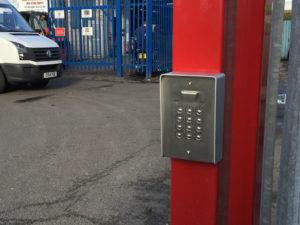
While investing in comprehensive perimeter security tools can have a financial impact on your business, failure to do so will almost always cost you more in the long run. With a recession looming and crime rates set to spike, it’s never been more important for UK businesses to firm up their defences and need a layered approach to protect your business.
Crime in the UK against businesses
Physical theft, burglary, arson, and cyber-attacks are just a few of the threats that brick-and-mortar businesses face. The latest Commercial Victimisation Survey (CVS) estimated that 38% of businesses operating in the wholesale and retail sector in England and Wales had recently fallen victim to crime. Worryingly, almost half of the respondents claimed to have witnessed an increase in violent crime since the beginning of the pandemic.
The right tools for the job
While there is a wide range of tools, equipment, and services out there to choose from, not all of them are created equally. Far too often, businesses invest in poorly designed equipment, and expensive technology that isn’t right for their situation or fail to consider the bigger picture of their overall security plan.
Developing a comprehensive security plan
For a security plan to work: there must be a symbiotic nature to an overarching plan. This means not only choosing the right tools for the job, but also considering how these products and services can help or hinder a particular outcome.
Risk assessments
Your starting point for any good plan of action should be, to begin with a comprehensive risk assessment. This enables you to develop a clear picture of the strengths and weaknesses of your current perimeter security. It should take into account the threats that you face, and relay concrete suggestions to counter them.
An experienced provider will be able to draw on previous case studies and examples to explain how and why particular products will benefit you. They will take time to understand how you work, and also any constraints (geographical, operational, or otherwise) that may affect your plan.
Making the most of technology
Technological advances are not only of benefit to the consumer market. Rapid growth in computer science and manufacturing has meant that equipment that was once reserved for the upper echelons, has now filtered its way down and is available to businesses at an affordable price. Fingerprint scanners, automatic number plate recognition systems, and robust anti-terrorism defences are just a few of the items that can now be integrated into plans.
Integration
It’s all well and good installing high-tech solutions, but they are just one part of a much bigger picture. These tools should be used to enhance or upgrade existing facilities, or to develop cornerstones of your plan – such as heavy-duty gates or barriers. It’s also critical to consider smaller touches such as security lighting, intercom systems, and key fobs that can all have a role to play in a thorough plan of action.
Here at Gateway Automation, we can provide you with a free, no-obligation quotation and feasibility survey. We also offer a nationwide reactive call-out service to deal with any equipment issues and are proud to be Gate Safe accredited. Call us today on 01522 682255 for more information.


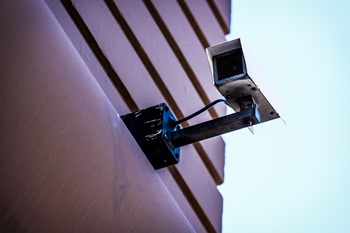 In recent years, internet and cyber security has become a hot topic. Ransomware, malware, phishing, and other malicious software all present very credible threats to businesses. And a failure to address these types of issues can, indeed, leave businesses in hot water.
In recent years, internet and cyber security has become a hot topic. Ransomware, malware, phishing, and other malicious software all present very credible threats to businesses. And a failure to address these types of issues can, indeed, leave businesses in hot water.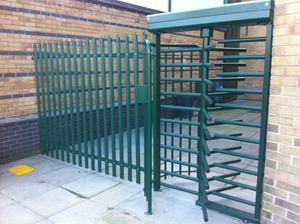 If you’re reading this blog; then the chances are that you have identified perimeter security as an area of your business that needs to be addressed. Like many businesses, you may be concerned about the massive derailment of operations that can result from a serious security breach. If this is the case then read on to discover how perimeter security is fundamental to safeguarding your income, reputation, and peace of mind. And importantly, what questions you should ask when discussing your needs with a provider.
If you’re reading this blog; then the chances are that you have identified perimeter security as an area of your business that needs to be addressed. Like many businesses, you may be concerned about the massive derailment of operations that can result from a serious security breach. If this is the case then read on to discover how perimeter security is fundamental to safeguarding your income, reputation, and peace of mind. And importantly, what questions you should ask when discussing your needs with a provider.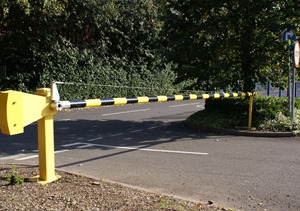 If you’ve decided it’s time to upgrade your security systems at your site, then one of your first ports of call should be perimeter security. One essential component of site security that should always be considered when enquiring about upgrades is a barrier. Here is what to consider when buying barriers.
If you’ve decided it’s time to upgrade your security systems at your site, then one of your first ports of call should be perimeter security. One essential component of site security that should always be considered when enquiring about upgrades is a barrier. Here is what to consider when buying barriers.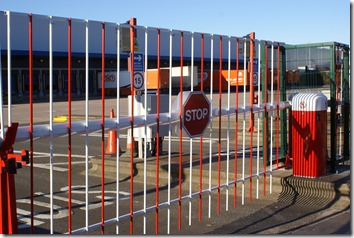 No matter whether you are a small, medium, or large organisation, there is always a place for physical security. Your business is home to your data, your employees and more so you must ensure they are protected as much as possible. Not only does physical security help protect your premises from an in-person attack but it also helps boost the strength of a company’s cybersecurity as well. Here are seven physical security measures every organisation should implement.
No matter whether you are a small, medium, or large organisation, there is always a place for physical security. Your business is home to your data, your employees and more so you must ensure they are protected as much as possible. Not only does physical security help protect your premises from an in-person attack but it also helps boost the strength of a company’s cybersecurity as well. Here are seven physical security measures every organisation should implement. 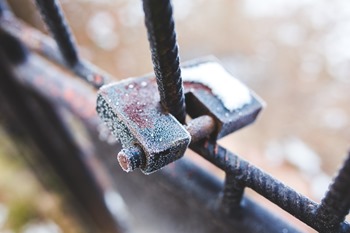 Although security is important all year round, businesses should focus on ensuring they have a specific security plan for the Winter months. Winter months bring unique security concerns that will need to be addressed. Here are eight business securing considerations for Winter.
Although security is important all year round, businesses should focus on ensuring they have a specific security plan for the Winter months. Winter months bring unique security concerns that will need to be addressed. Here are eight business securing considerations for Winter.  The majority of businesses are now more aware than ever that cybersecurity is vital. Cyber attacks are now, unfortunately, more common than ever and companies need to be prepared. However, what some businesses do not know is how detrimental cybersecurity is when it comes to the perimeter and physical security. Businesses need to make sure that their security has a full package, taking both of these things into account. Here, we discuss how cybersecurity can impact physical security.
The majority of businesses are now more aware than ever that cybersecurity is vital. Cyber attacks are now, unfortunately, more common than ever and companies need to be prepared. However, what some businesses do not know is how detrimental cybersecurity is when it comes to the perimeter and physical security. Businesses need to make sure that their security has a full package, taking both of these things into account. Here, we discuss how cybersecurity can impact physical security. 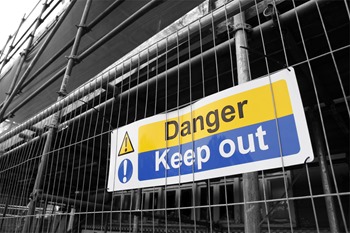 Securing building sites is a hot topic in the construction industry. Building sites are a common target for vandals and thieves. They can be targets for homeless people as well as kids who view building sites as an adventure playground. It is because of these potential intruders that construction companies must ensure that building sites are as secure as they can be.
Securing building sites is a hot topic in the construction industry. Building sites are a common target for vandals and thieves. They can be targets for homeless people as well as kids who view building sites as an adventure playground. It is because of these potential intruders that construction companies must ensure that building sites are as secure as they can be. 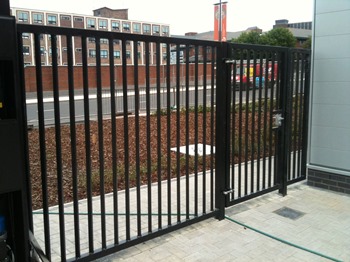 Physical security practices in the workplace is a huge topic. but where does the cautious business owner start?
Physical security practices in the workplace is a huge topic. but where does the cautious business owner start?
Recent Comments